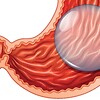Fritextsökning
Artiklar per år
Innehållstyper
-

Carl Borrebaeck – professor and serial entrepreneur with a taste for speed
Award-winning cancer researcher, the founder of many listed companies, and constantly in the academic and commercial spotlight for decades. However, Carl Borrebaeck, Professor of Immunotechnology at Lund, is not yet satisfied. “We have a new, potentially super exciting project in the pipeline,” he says.
-

Ancient DNA provides new insights – “The immune system lost its job”
Ancient bone remains from our ancestors have provided new insights into the prevalence of multiple sclerosis. By looking back in time, researchers can provide a possible explanation for why the disease is more prevalent in northern Europe.
-

Blodprov för Alzheimers får genombrottsstatus i USA
Ett blodprov som utvecklas av läkemedelsföretagen Roche och Eli Lilly som stöd vid diagnosticering av Alzheimers sjukdom har nu tilldelats genombrottsstatus i USA.
-

From Valneva to the CEO position at NorthX – “I saw it as a great opportunity”
A new cell therapy for leukaemia, a vaccine in tablet form against cholera, and a proprietary mRNA line with the potential capacity to supply the entire Nordic region with vaccines during a future pandemic. These are some of the projects underway at NorthX Biologics – under the direction of new CEO Janet Hoogstraate.
-

KI’s new super machine measures brain activity in real-time – “A very expensive hairdo”
Using brand-new, super-advanced equipment, researchers at Karolinska Institutet can now measure brain activity in real-time, with higher resolution than previously possible. “This opens up fantastic opportunities”, says brain researcher Daniel Lundqvist.
-

A new special edition and a new event in Copenhagen – This is happening at Life Science Sweden 2024
The new year brings new features for the readers of Life Science Sweden.
-

Tirzepatide approved for obesity by the FDA – to be branded as Zepbound
Diabetes drug tirzepatide has now also been approved in the US for treating obesity.
-

The first drugs to slow down Alzheimer’s – but what does it mean for patients?
New treatments for early Alzheimer’s are bringing hope to thousands of patients and their families. The question is, who will get the treatment, how will the right patients be found in time, and will the healthcare system’s resources be sufficient? Life Science Sweden has spoken to Swedish researchers in Alzheimer’s who voice cautious hope but also see further challenges.
-

Astra Zeneca’s Sweden CEO: “We have great faith in our portfolio”
It all started with a summer job as an operator at Astra’s chemical factory in Snäckviken, just outside Södertälje. More than three decades and countless different assignments later, Per Alfredsson, born and raised in Södertälje, is CEO of Astra Zeneca Sweden, which employs 7800 people in Södertälje, Stockholm and Gothenburg. “It was a very special feeling to be in charge of the entire organisation,” he says in an interview about his career and potential future blockbusters.
-

Astra Zenecas Sverige-vd: ”Vi tror superstarkt på vår portfölj”
Det började med sommarjobb som operatör på Astras kemifabrik i Snäckviken. Över tre decennier och otaliga olika uppdrag senare är Södertäljesonen Per Alfredsson vd för hela Astra Zeneca Sverige, som samlar 7 800 anställda i Södertälje, Stockholm och Göteborg. ”Det var en väldigt speciell känsla att bli chef över hela verksamheten”, säger han i en intervju där han berättar om sin karriär – och om kommande potentiella blockbusters.
-

Samuel Lagercrantz: A special kind of hellishness afflicts post-COVID patients
In addition to the disease itself those suffering from post-COVID have to deal with people who try to label them as hypochondriacs, writes Samuel Lagercrantz in an editorial.
-

Larm: Varningsnätverk för globala sjukdomsutbrott kan kollapsa
Varningssystemet för sjukdomsutbrott, Pro Med, som bland annat var en av de första att varna världen om covid-19 tycks vara nära kollaps.
-

Nanexa develops depot formulation of the diabetes and obesity drug Saxenda
Uppsala-based company Nanexa has signed an agreement with a German contract research company to start a clinical study with a monthly depot of liraglutide. The drug is currently approved for the treatment of diabetes and obesity.
-

Study: Semaglutide tablet produces weight loss
The pharmaceutical semaglutide is effective for weight loss even when given in tablet form, according to a phase 3 study.
-

New drug alert in the US: Rise in overdoses linked to the use of drugs for animals
A combination of the synthetic drugs fentanyl and xylazine, an animal tranquilizer, has been labelled a “growing threat” by the White House due to its role in the ongoing opioid crisis in the US.
-

"Låt life science ta nästa steg med hjälp av kommunikation och strategi"
Life science-sektorn i Sverige har skördat stora framgångar tack vare politiska satsningar, ett engagerat kapital och hög innovationstakt. Men fortsatta framsteg kan inte tas för givna, skriver Anders Blanck, tidigare vd för Lif – de forskande läkemedelsföretagen, och idag seniorkonsult hos Gullers Grupp, i en gästkrönika.
-

Column: ”Cheating with pea flowers and does it matter whether you are right?”
Is it possible to forgive shortcuts or outright cheating in science - if it turns out that the researcher was ultimately right? Anna Törner discuss this topic in a column.
-

Individual DNA passport could result in fewer drug side effects
You may be required to show a DNA passport when you pick up medicines at the pharmacy in the future. According to a new study, patients might suffer 30% fewer side effects if the drug treatment is adapted to their genes.
-

“Photon counting in computed tomography is the holy grail”
Erik Fredenberg, a researcher in physics at KTH and GE, is working to implement photon-counting CT in clinics. To shorten lead times and reduce the radiation dose in patients, he is setting out to develop a framework for virtual clinical trials for the technology.
-

The stomach medication that became the biggest blockbuster of the 1990s
The omeprazole molecule was synthesised as early as 1979, but it took many years before the then Astra had an approved pharmaceutical. Once this happened, a tablet was available that was soon to help millions of people worldwide and break all sales records.
-

"Are we doing business the wrong way around in the Life Science Sector?"
in white men and certainly not for patients who are older who are taking a number of medications.
-

Alert from the Swedish Medicines Agency: Many complications with gastric balloons
According to the Swedish Medicines Agency, an increasing number of serious complications are being reported in procedures with gastric balloons as a method for weight loss. The authority fears significant shortcomings in the information to patients both before and after the procedure.
-

Anna Törner: Kalashnikovs in a new guise
Thanks to resisting European regulatory authorities, Europe has been spared the opioid epidemic. In the 1960s, the situation was the opposite as the American pharmaceutical authority, the Food and Drug Administration (FDA), refused to approve thalidomide (Neurosedyn), writes Anna Törner in a column.
-

Anna Törner: Kalasjnikovs i ny skepnad
Europa har skonats från opioidepidemin, tack vare europeiska regulatoriska myndigheter som höll emot. På 1960-talet var situationen omvänd då den amerikanska läkemedelsmyndigheten, FDA, vägrade godkänna talidomid (Neurosedyn), skriver Anna Törner i en krönika.